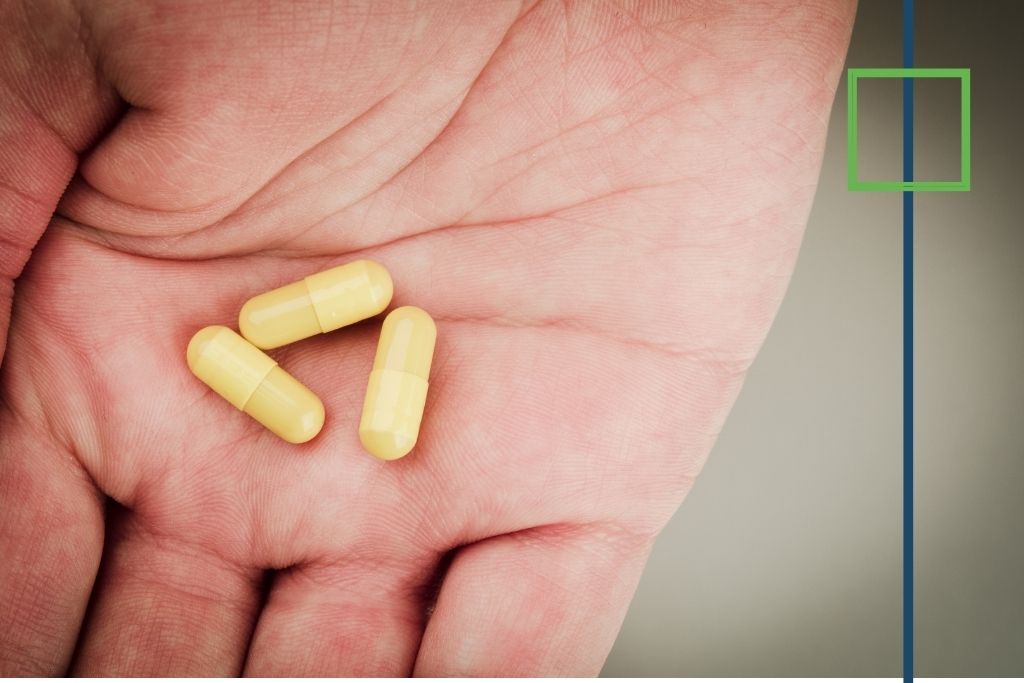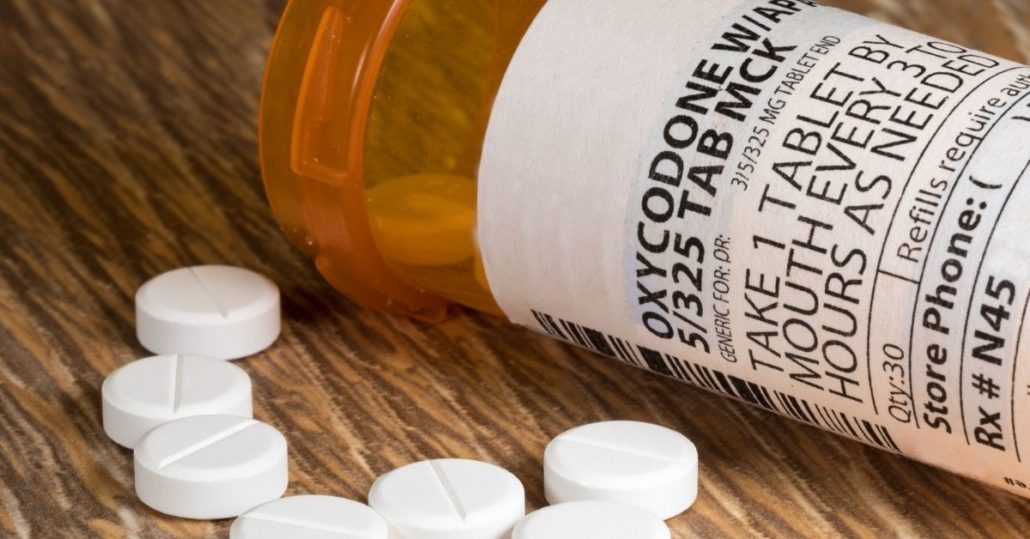Why Is This Medication Prescribed?
Promethazine is a medication used to relieve the symptoms of allergic reactions such as allergic rhinitis (watery eyes and runny nose caused by allergy to mold, pollen, or dust), allergic conjunctivitis (red, watery eyes caused by allergies), allergic reactions to blood or plasma products and allergic skin reactions.
According to the National Institute of Health (NIH) [1], promethazine is used with other medications to treat anaphylaxis (severe, sudden allergic reactions) and the common cold symptoms such as cough, sneezing, and runny nose. Promethazine is also prescribed to relax and sedate patients before and after surgery and during labor.
Promethazine may also be used to prevent and control nausea and vomiting after surgery and other medications to help relieve pain after surgery. In addition, it is prescribed to avoid and treat motion sickness. However, it is essential to remember that this medication only helps control symptoms but will not treat the cause of the symptoms or speed recovery. It is available as a solution, tablet, and rectal suppository. In tablet form, it can be crushed or cut and taken with or without food.
Promethazine has been reported to be misused in combination with opioids in several settings. The drug misuse by itself or in combination with opioids may have serious and adverse promethazine side effects. According to the National Center for Biotechnology (NCBI) [2], In contemporary medical practice, the use of promethazine in combination with opioids for pre and post-operative sedation has declined due to adverse promethazine side effects and lack of data supporting the clinical efficacy.

Get Your Life Back
Find Hope & Recovery. Get Safe Comfortable Detox, Addiction Rehab & Mental Health Dual Diagnosis High-Quality Care at the We Level Up Treatment Centers Network.
Hotline (877) 378-4154How Promethazine Works?
Promethazine works by blocking a specific natural substance in the body called histamine during an allergic reaction. Histamine is an organic compound released during a local immune response. Promethazine also decreases the number of signals shot off by the brain, which induces vomiting. When in tablet form, it may interact with other drugs.
The introduction of antihistamines to other substances changes their common effects. This change makes the antihistamine popular among medical professionals during combination therapy. For instance, when combined with Opioids like Meperidine, it can help as a pain reliever. If taken with phenobarbital, which is barbiturate, promethazine side effects can include severe drowsiness.
According to the US Food and Drugs Administration (FDI) [3], Phenergan tablets and suppositories (a popular brand of promethazine) may prolong, increase, or intensify the sedative action of other central-nervous-system (CNS) depressants, such as sedatives/hypnotics (including barbiturates), alcohol, narcotics, general anesthetics, tranquilizers, and tricyclic antidepressants. Excessive amounts of this medication relative to a narcotic may lead to promethazine side effects that include motor hyperactivity and restlessness in the patient with pain; these symptoms usually disappear with adequate control of the pain.

Get Help. Get Better. Get Your Life Back.
Searching for Accredited Drug & Alcohol Rehab Centers Near You? Or Mental Health Support?
Even if you have failed previously, relapsed, or are in a difficult crisis, we stand ready to support you. Our trusted behavioral health specialists will not give up on you. Call us when you feel ready or want someone to speak to about therapy alternatives to change your life. Even if we cannot assist you, we will lead you wherever you can get support. There is no obligation. Call our hotline today.
FREE Addiction Hotline – Call 24/7Promethazine Side Effects & Abuse
Promethazine affects the body’s ability to regulate alertness, inflammation, and pain control. By blocking the release of histamine, it causes deep relaxation and sleepiness. This drug increases the skin’s sensitivity to the sun and increases the risk of sunburn.
According to the Nation Center for Biotechnology Information (NCBI) [4], promethazine has been reported to induce significant agitation, sedation, hallucinations, dystonic reactions, seizures, and possibly apparent life-threatening events or sudden infant death syndrome.
Two of the most serious promethazine side effects are addressed in a boxed warning on the drug’s labeling. These reactions include respiratory depression, which can be lethal (happening primarily in children under the age of 2 years), and, when this drug is given intravenously, severe tissue damage and chemical irritation, including gangrene.
When abused, this over the counter drug creates several negative effects like:
- Bruising
- Seizures
- Jaundice
- Insomnia
- Dry mouth
- Ear ringing
- Nightmares
- Over excitement
- Abnormal movements
- Abnormal heart rhythm
- Blurred or double vision
- Hallucinations or confusion
- Changes in blood pressure or dizziness
- Breathing problems or abnormal breathing
- Allergic skin reactions and sensitivity to the sun
- Organ failure (heart, brain, skin, blood, stomach, intestines, and lungs)
Though dangerous on their own, the Antihistamine such as promethazine can be life-threatening when combined with other illicit drugs. Promethazine side effects and abuse is often seen in people struggling with coexisting substance use disorder and addiction. In a research published by the National Center for Biotechnology Information (NCBI) [5], experts discovered compelling evidence of Promethazine’s non-medical use. One-quarter of the participants in the study who were using Methadone was also taking Promethazine. Out of the sample of Methadone users, only 15% had an active Promethazine prescription.
Comfortable Facilities & Amenities
High-Quality Addiction & Mental Health Rehabilitation Treatment
Rehab Centers TourRenowned Addiction Centers. Serene Private Facilities. Inpatient rehab programs vary.
Addiction Helpline (877) 378-4154Proven recovery success experience, backed by a Team w/ History of:
15+
Years of Unified Experience
100s
5-Star Reviews Across Our Centers
10K
Recovery Success Stories Across Our Network
- Low Patient to Therapist Ratio
- Onsite Medical Detox Center
- Comprehensive Dual-Diagnosis Treatment
- Complimentary Family & Alumni Programs
- Coaching, Recovery & Personal Development Events

Is Promethazine Addictive?
Promethazine can be addictive. Not only can it cause dependency on its own, but it’s most commonly abused among opioid users. When taken by itself, this drug can cause sedation and drowsiness. When mixed with opioids like codeine, promethazine side effects can include induced sedation, pain relief, and euphoria. Someone who uses this drug becomes dependant on these promethazine side effects and may continue using them as a result. Over a period of time, this can become a full-blown addiction.
In a study by the National Institute of Health (NIH) [6], a majority of participants believed that their friends felt promethazine codeine use was “cool” and “normal” among college students their age, and that reinforcing factors, such as curiosity and “peer pressure”, contributed to initial use of this drug.
Due to its antihistamine property, many people believe that this drug is harmless; however, this is far from the truth. Individuals who engage in any form of substance abuse are at risk of dependency and even overdose. Promethazine side effects due to abuse and addiction can be damaging and life-changing in the most dangerous ways possible. The emotional and physical effects of substance abuse and addiction can take a toll on anyone. Promethazine is one of the many dangerous substances that should always be handled with caution.
Promethazine Side Effects in Combination with Opioid Abuse
Promethazine, opioids like codeine, heroin, and morphine, and abuse are highly connected. Methadone use for opioid addiction treatment is associated with Promethazine abuse. The antihistamine property of this drug strengthens the opioid “high.” The enhancing capacity makes promethazine popular among individuals with an addiction disorder. Promethazine abuse is common among people with chronic pain, injection drug users, and at-risk teenagers. Unfortunately, people without prior substance use disorders are becoming addicted to this drug as well.
The medical use of a combination of opioids and promethazine was first reported in 1949 as a “lytic cocktail,” a combination of promethazine, chlorpromazine, and meperidine (and related compounds) that was noted to have an opioid-sparing effect, allowing the use of lower doses of opioids to achieve sedation. This resulted in the decline of its use for pre and post-operative sedation due to its adverse effect [7].
According to reports from NCBI [8], cough medicine containing both promethazine and codeine began to appear in or around 2000, with an epicenter in Texas. Promethazine has also been reported to be present in fatal opioid overdoses in Kentucky and Seattle. There was also documented intravenous promethazine use by new heroin injectors in Vietnam. Cases of promethazine abuse in patients receiving buprenorphine treatment for opioid dependence have been reported in India and China.
Promethazine Side Effects & Withdrawal Symptoms
Individuals who frequently use codeine (with or without promethazine) may develop a dependence on opioids. If they quit using it or drastically decrease their use, they may experience withdrawal. Withdrawal can last several days, and symptoms may include:
- Chills
- Sweating
- Runny nose
- Dilated pupils
- Trouble sleeping
- Increased heart rate
- Increased breathing rate
- Restlessness/irritability/anxiety
- Nausea/vomiting
- Stomach cramps
- Muscle aches
- Diarrhea
What Is Pharming?
Lately, the potential for misuse of medications that are not already controlled has been reported worldwide. Pharming is a phenomenon concerning the non-medical use of prescription drugs (tranquilizers, pain relievers, stimulants, sedatives) and over-the-counter (OTC ), including cold and cough medications, particularly those containing dextromethorphan or DXM ( a cough suppressant and expectorant found in many OTC cold medicines) and promethazine. The abuse of these compounds may be facilitated by their easy accessibility, low cost, decreased perception of the potential for harm, and growing social acceptance.
World-class, Accredited, 5-Star Reviewed, Effective Addiction & Mental Health Programs. Complete Behavioral Health Inpatient Rehab, Detox plus Co-occuring Disorders Therapy.
CALL (877) 378-4154End the Addiction Pain. End the Emotional Rollercoaster. Get Your Life Back. Start Drug, Alcohol & Dual Diagnosis Mental Health Treatment Now. Get Free No-obligation Guidance by Substance Abuse Specialists Who Understand Addiction & Mental Health Recovery & Know How to Help.
What Is Purple Drank Or Lean?
Lean or purple drank is the moniker given to the recreational drug that is created by combining large doses of prescription cough syrup (most commonly promethazine-codeine products, which are commonly a deep purple color) with hard candy and carbonated soft drinks. Common side effects of purple drank are nausea, euphoria, dizziness, impaired vision, hallucinations, memory loss, and seizures.
Drinking promethazine-codeine cough syrup combined with soda (a combination called syrup, sizzurp, purple drank, lean, or barre) was referenced often in some popular music beginning in the late ’90s and has become increasingly popular among youth in several areas of the country. A variation of “purple drank” is promethazine-codeine cough syrup mixed with alcohol. Users may also flavor the mixture with the addition of hard candies.
Operating machinery or getting behind the wheel of a car after drinking purple drank increases the risk of accidents. As a depressant, alcohol can cause sedation and even euphoria. Once the buzz from the drink wears off, however, you may feel very sleepy and possibly depressed. For instance, DJ Screw died in 2000 because of codeine-promethazine-alcohol overdose. Big Moe was another DJ who died after falling into a coma related to purple drank misuse.
Treatment For Promethazine Side Effects Due To Addiction
Promethazine may be a legal prescription medication that’s not a concern for drug-enforcement officials. However, that doesn’t mean it doesn’t have the potential to cause harm or be abused. It’s very important to treat all drugs, even the “safe” ones, with caution. Be watchful and ensure that promethazine does not fall into the wrong hands as it could instantly become deadly if combined with another illicit substance [9].
Individuals who become addicted to mixtures that include opioids and other prescription drugs should get prescription drug addiction treatment to prevent further psychological and physical repercussions. If you or someone you love is struggling with prescription drug addiction, particularly promethazine side effects because of abuse and addiction, get them the safest help they need and deserve. We Level Up NJ offers a safe and medically-assisted prescription drug and opioid addiction detox program. Contact our team today!

Experience Transformative Recovery at the We Level Up Treatment Center.
See our authentic success stories. Get inspired. Get the help you deserve.



Start a New Life
Begin with a free call to an addiction & behavioral health treatment advisor. Learn more about our dual-diagnosis programs. The We Level Up treatment center network delivers various recovery programs at each treatment facility. Call to learn more.
- Personalized Care
- Caring Accountable Staff
- Comfortable Amenities
- Licensed & Accredited
- Renowned w/ 5-Star Reviews
We’ll Call You
Sources
[1] NIH – https://medlineplus.gov/druginfo/meds/a682284.html
[2] [5] [7] [8] NCBI – https://www.ncbi.nlm.nih.gov/pmc/articles/PMC3618500/
[3] FDA – https://www.accessdata.fda.gov/drugsatfda_docs/label/2004/07935s030lbl.pdf
[4] NCBI – https://pubmed.ncbi.nlm.nih.gov/2196521/
[6] NIH – https://pubmed.ncbi.nlm.nih.gov/18159781/